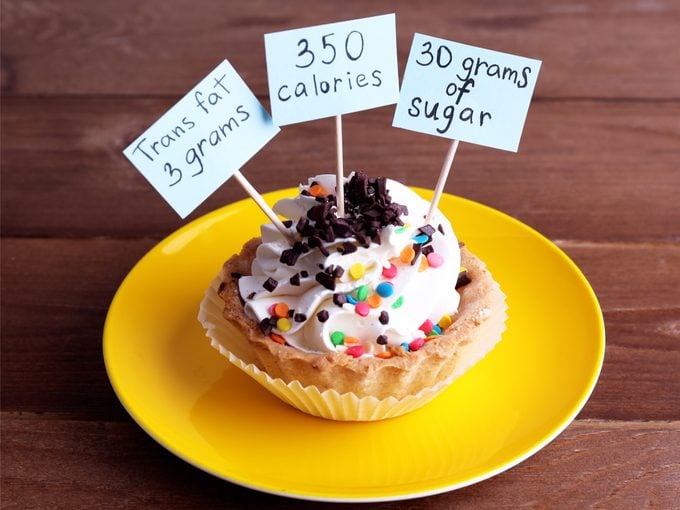Do You Really Need to Count Calories?
We asked Abby Langer, a registered dietitian, to help answer one of our most pressing questions.

The truth about counting calories
Reader’s Digest Canada: For decades we’ve heard that the secret to weight loss and maintenance is calories in–calories out. Is that idea changing?
Abby Langer: Yes. We’ve started to take a more holistic view of nutrition and health, and there’s an understanding that the quality of food is more important than calorie counting. Back when I was studying nutrition at university, we learned that if you eat 3,500 calories over and above what you need in a day, you’re going to gain one pound. It’s not that this is untrue, but it’s extremely simplistic. Calories are processed differently depending on which food they come from, individual genetics and gut bacteria.
Let’s backtrack. What exactly is a calorie?
A calorie is the amount of heat needed to raise the temperature of one gram of water by one degree Celsius. It was actually first used to measure efficiency in steam engines. The concept as it relates to food and diet came about in the 1860s, based on the idea that calories are to our bodies what fuel is to fire.
How is a calorie from an apple different than one from a chocolate bar?
A calorie is always technically the same, but there are differences relating to nutrition. For instance, when you consume a food that has natural sugar in it—like an apple—the sugar is bound up with other nutrients, like fibre and antioxidants. That means it’s going to fuel you for longer than a chocolate bar, where the sugar will be absorbed very quickly—resulting in a spike in blood sugar followed by a crash.
Speaking of fruit, it’s demonized by a lot of trendy diets, like keto and Whole 30. How come?
I hate that. The anti-fruit trend is an extension of the anti-carb movement, and a lot of fruit is high in natural sugar and therefore relatively high in carbs. But as I was saying, fruit has a lot of benefits that simple carbs don’t. It’s absolutely part of a healthy diet. Nothing makes me angrier than when people use fear tactics to sell a new way of eating, leading to more confusion and anxiety around food.
When I was growing up in the ’80s and ’90s, fat was the enemy.
Right. That was the era of fat phobia—fat-free salad dressing, diet and processed everything. This goes back to our topic of calories because fat is very calorie-dense. Of course, now we’ve swung in the opposite direction with high-fat, high-protein diets, and processed foods are the bogeyman. A lot of people don’t even know what “processed” means. Pasteurized milk, roasted almonds and hummus are all processed foods—anything that has been altered from its natural state. But they’re not the same as a Twinkie.
What do you make of the criticism that the organic food movement is elitist?
That is absolutely true. Most people can’t afford to spend money on whatever Gwyneth Paltrow is recommending. I get annoyed by “clean eating” culture. Not just because the science doesn’t support it, but because it turns food and weight into a morality issue. Food fundamentalism is like a new religion and a way of assessing how “pure” we are: detoxing, fasting, giving up sugar for 21 days.
Do those methods even work?
No, not for sustained success. In fact, the research shows that people who lose weight from extreme dieting are more likely to gain it back, and more.
If not calorie counting, what do you recommend for improving our eating habits?
It’s not that I’m totally against calories. I have clients who say counting them is an easy way to keep on top of what they’re consuming, and that’s fine. I just don’t like the obsession with numbers. The new Canada Food Guide, which focuses less on serving sizes and more on common sense, is a step in the right direction. It highlights healthy habits and rituals around eating: preparing your own food when possible, eating with other people and being aware of how marketing can influence food choices. It’s exciting to see those factors being recognized as part of a healthy diet.
Next, find out the essential vitamins your body needs to stay healthy.



